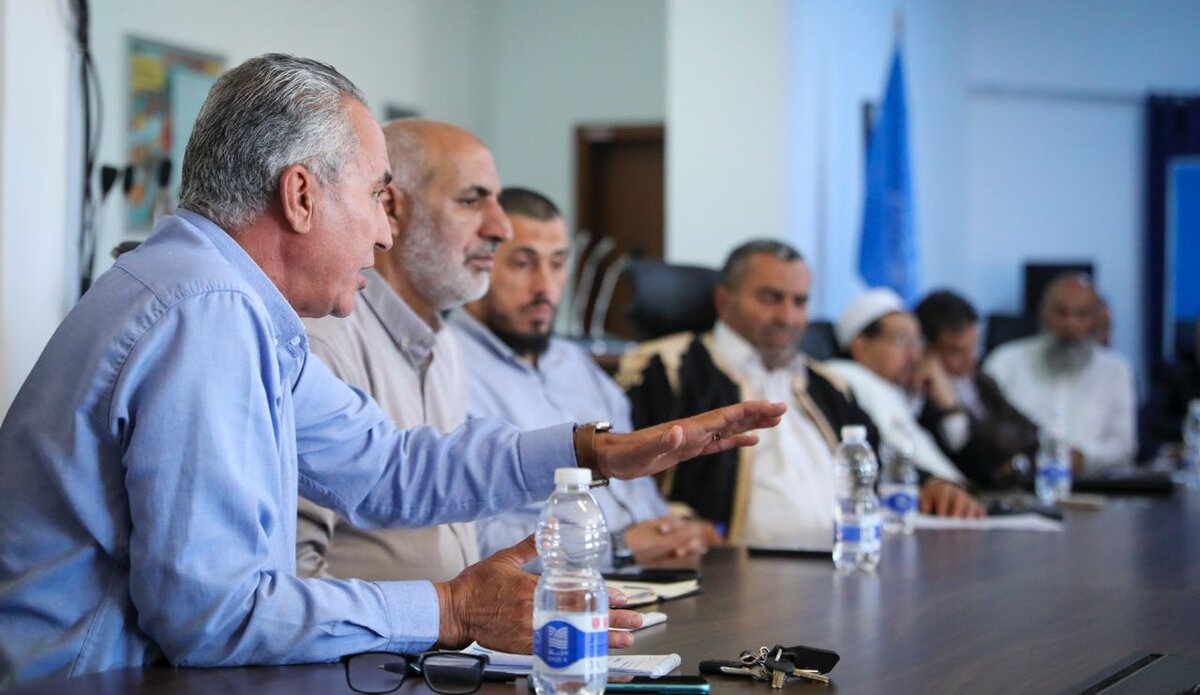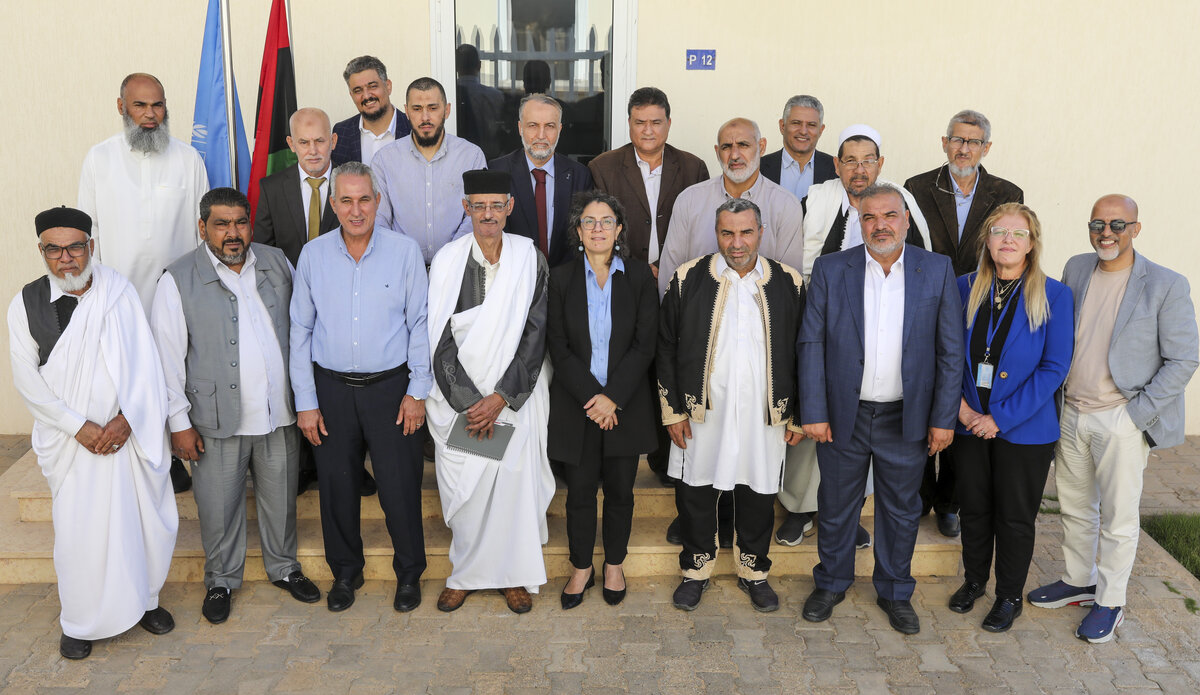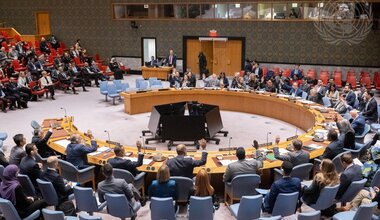Libyan notables, community leaders and local mediators discuss ways to support the Tripoli truce and build lasting stability
TRIPOLI – To strengthen the fragile truce established after this months’ clashes in Tripoli, mechanisms should be put in place to prevent unilateral military action and monitor and enforce commitments to the agreement, 16 western leaders advised the United Nations Support Mission during a meeting Wednesday.
The Deputy Special Representative of the Secretary-General for Political Affairs, Stephanie Koury, chaired the meeting which focused on ways to strengthen the truce and establish lasting stability. The leaders included notables, community leaders, and mediators from Tajoura, Zintan, Souk Jumua, Misrata, Wershafana, Abou Slim, Zowara, Jadu, Bani walid, Gharian, Zlitan, Zawya, and Greater-Tripoli.
The Mission brought the leaders together to hear their assessment of the situation and ideas for how they can contribute to preserving the truce and support stabilization initiatives, including the Truce Committee recently established by the Presidency Council in collaboration with UNSMIL.
The DSRSG emphasized the important role community leaders play in promoting dialogue, de-escalation and conflict prevention.
Participants discussed effective approaches to diffusing tensions in Tripoli and the western region, including ideas for building trust with conflicting parties and fostering constructive dialogue.
In addition to recommending monitoring mechanisms and protocols to prevent and enforce compliance with the truce, they also suggested enhancing stakeholder coordination to ensure a cohesive approach to security arrangements.
“The causes of the fighting must be addressed,” said one notable, stressing the need to “stop the influence of armed formations on public political affairs.”
The group advocated for building accountability for security and military institutions, including by developing a comprehensive plan to rehabilitate and reintegrate armed formations’ members into civilian life or formal security structures. They also advocated for security arrangements that entail the removal of armed actors from the capital.
“Libyans aspire to a state of institutions, but we currently suffer from the burden of armed groups, which have played a major role in obstructing their establishment,” said one notable. “We must work to expel all such groups from the capital.”
By the end of the meeting, the notables committed to encouraging youth to desist from engaging in conflict and emphasizing to communities the importance of fighting misinformation and disinformation.
They urged UNSMIL to continue its conflict prevention and mediation work and issued a statement supporting the Truce Committee. In the statement, the leaders called for permanent end to the fighting, protection of civilians and their property, and professional security sector reform in line with rule of law and human rights principles. They reminded all parties of their responsibility to uphold the truce.
“We are in the period of the sacred months, and today, thank God, the circumstances are better,” said a leader from Zintan. “We must work together as notables to seek a permanent halt to the fighting.
 United Nations Peacekeeping
United Nations Peacekeeping UN
UN
















